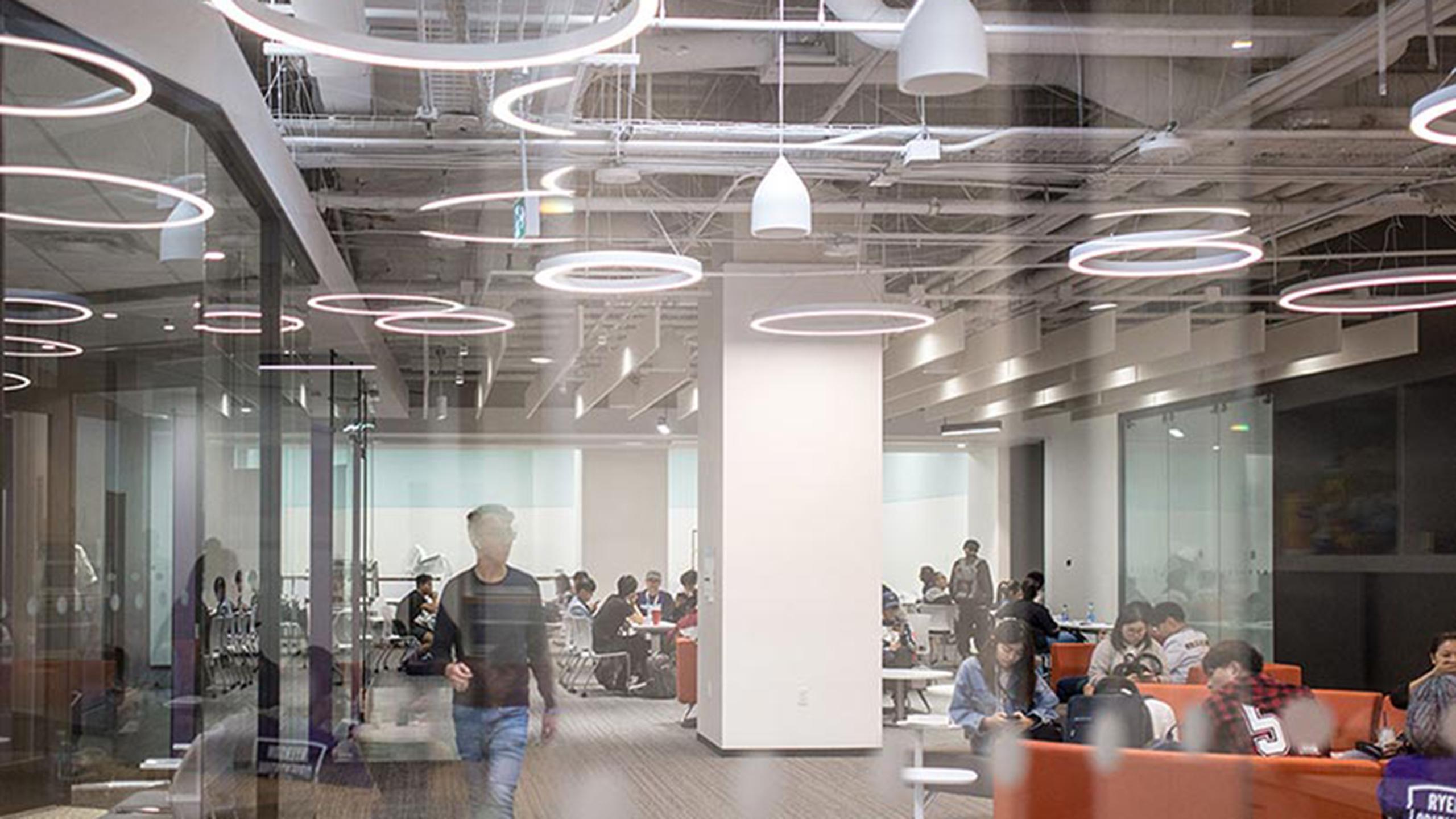By Raneem Al-Ozzi
The Ryerson English as an Additional Language (Real) Institute has relocated to a new facility at College Park after a five-month renovation period.
The 30,000 sq-ft. area at College and Yonge streets was designed “with flexibility in mind,” said Gerd Hauck, director of the ESL Foundation Program.
The new facility has 21 classrooms equipped with the “latest educational technologies” the institute did not have access to before, said Hauck. These technologies include soundproof room dividers that can be moved around and double as partitions, as well as digitally retractable tables that can be folded and stacked.
The Real Institute is based on Ryerson’s ESL foundation program for students who have gained admission into the academic program of their choice, but have fallen short in meeting the requirements for the International English Language Testing Score (IELTS).
Students have an opportunity to upgrade their English proficiency over an eight month academic year and then gain full admission to Ryerson through the institute.
Currently, there are approximately 220 students enrolled in the ESL foundation program at Ryerson, but the new Real Institute space is designed to accommodate up to 600 students—a target Hauck is expecting to reach within the next five to six years.
The classrooms come in three different sizes, the smallest of which can accommodate 25 students, and the largest is an open space named the “town hall” which, when opened up, can take up to 250 people. The larger classrooms can be be divided into smaller classrooms using sound proof partitions.
The new facility will also consist of unique spaces such as accessible stadium seating, a mingling area where students can play music or have lunch, “interview booths” where students can meet with their mentors or instructors for private one-on-one conversations, as well as a multi-purpose safe space for nursing mothers, meditation, prayer or diffusing panic and anxiety.
But Hauck is mostly excited about the sense of community the new location is intended to bring.
“Our staff was split between four different floors in the Chang school and our students were trained in three different floors in the Victoria building so we were all over the place. We had no real sense of cohesiveness, no sense of joint common enterprise,” he said, noting that they will now be “a one stop education.”
Last year, 2 per cent of Ryerson students were international students. This year, the number has increased by 40 per cent
Ryerson President Mohamed Lachemi said that the Real Institute would be “very unique” for international students who are coming to Ryerson, adding that “most of the students…need that preparation, in terms of language preparation, before interviewing for their programs.”
While the students in the ESL foundational program are the main drivers behind the project, the Real Institute is also looking to develop programs for students who aren’t necessarily seeking admission to Ryerson but simply want to improve their English language proficiency, said Hauck.
Ryerson is increasing its pursuit of international students considerably. Last year, 2 to 2.5 per cent of Ryerson students were international students. This year, the number of students has increased by 40 per cent.
The institute wanted to find out what could be done to help international students who were accomplished on the academic front but whom in the past were rejected because they weren’t proficient in their testing scores.
The ESL foundation program started in 2013 with 25 students as a pilot project. The pilot project sought to find out if students who spent a year here were able to catch up with the English level of their peers. The following year, there were 56 students enrolled in the program, 80 in the 2015-2016 academic year, 160 in the 2016-2017 academic year, and about 220 students this year.
“We felt it was a waste to let go of these students who could potentially be very strong Ryerson students,” said Hauck.










Leave a Reply